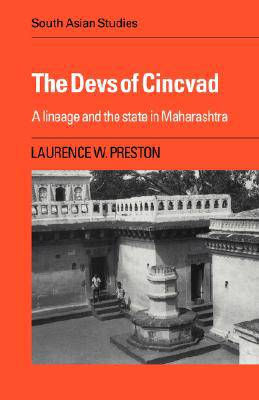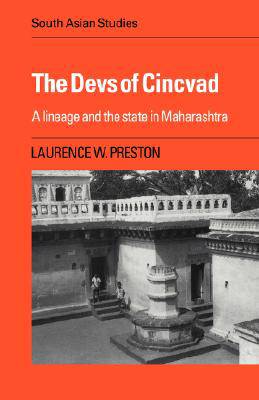
Bedankt voor het vertrouwen het afgelopen jaar! Om jou te bedanken bieden we GRATIS verzending (in België) aan op alles gedurende de hele maand januari.
- Afhalen na 1 uur in een winkel met voorraad
- In januari gratis thuislevering in België
- Ruim aanbod met 7 miljoen producten
Bedankt voor het vertrouwen het afgelopen jaar! Om jou te bedanken bieden we GRATIS verzending (in België) aan op alles gedurende de hele maand januari.
- Afhalen na 1 uur in een winkel met voorraad
- In januari gratis thuislevering in België
- Ruim aanbod met 7 miljoen producten
Zoeken
€ 64,95
+ 129 punten
Omschrijving
This innovative study of the power of lineage in India across two centuries examines some of the traditional social structures which transcended so successfully the political upheavals of British rule. Under the Maratha Kingdom, the Devs occupied a privileged position in the ritual, social and economic hierarchies of the state from the 1620s onwards, their continuing influence stemming principally from obtaining grants of rent-free land around Pune and successfully maintaining this inheritance from generation to generation. With the British conquest of Maharashtra in 1818, the close relations between state and privileged subject were slowly broken and by the 1850s, the British sought to settle the Devs' landed rights. Basing their inquiries on preconquest vernacular documents, they became entwined in disputes over the tenure of the Devs' lands and the mode of inheritance within the lineage that reveal a telling ignorance of the customary relations between the Indian State and its privileged subjects.
Specificaties
Betrokkenen
- Auteur(s):
- Uitgeverij:
Inhoud
- Aantal bladzijden:
- 288
- Taal:
- Engels
- Reeks:
- Reeksnummer:
- nr. 41
Eigenschappen
- Productcode (EAN):
- 9780521047777
- Verschijningsdatum:
- 26/11/2007
- Uitvoering:
- Paperback
- Formaat:
- Trade paperback (VS)
- Afmetingen:
- 140 mm x 216 mm
- Gewicht:
- 367 g

Alleen bij Standaard Boekhandel
+ 129 punten op je klantenkaart van Standaard Boekhandel
Beoordelingen
We publiceren alleen reviews die voldoen aan de voorwaarden voor reviews. Bekijk onze voorwaarden voor reviews.









